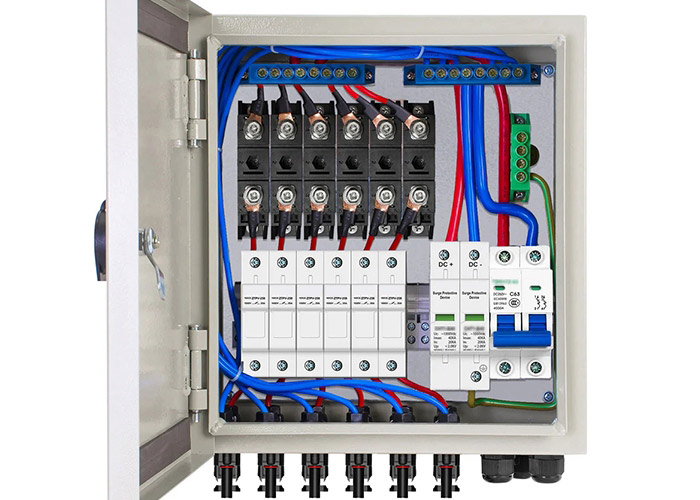What is the Difference Between a Relay and a Contactor?
Relays and contactors are both electromagnetic switches, but they differ in their design, capacity, and…
A Miniature Circuit Breaker (MCB) is a type of electrical protection device designed to automatically switch off the electrical circuit during overloads or short circuits. It protects electrical systems and appliances by interrupting the current flow when it exceeds a safe threshold, preventing potential damage or fire hazards.
ELEHUB’s DC Miniature Circuit Breaker offers compact yet robust protection for low-voltage DC circuits. It’s ideal for solar energy systems, electric vehicles, and small industrial applications, providing fast and efficient protection against overcurrent and short circuits.

A Miniature Circuit Breaker (MCB) works by automatically breaking a circuit when it detects an abnormal current flow, such as an overload or a short circuit. Here’s how it functions in detail:
Under normal conditions, current flows through the MCB without any interruption. The device contains an internal switch that remains closed, allowing electricity to pass through.
When the current exceeds the MCB’s rated capacity for a prolonged period (typically due to an overload), it activates the thermal protection mechanism:
In the case of a short circuit, the MCB uses its magnetic protection mechanism for a quicker response:
When the MCB trips, an electrical arc may form between the opening contacts. MCBs use arc chutes to elongate and extinguish the arc safely.
After tripping, the MCB can be manually reset once the fault is cleared, restoring power to the circuit. This resettable feature makes MCBs convenient and reliable for protecting residential and commercial electrical systems.
Molded Case Circuit Breakers (MCCBs) and Miniature Circuit Breakers (MCBs) are both types of circuit breakers used to protect electrical circuits from overloads and short circuits, but they have different applications, capacities, and features.
Molded Case Circuit Breaker (MCCB)
Miniature Circuit Breaker (MCB)
Summary
Choosing between MCCBs and MCBs depends on the specific requirements of the electrical system, including current rating, protection needs, and space constraints.
Inquire Now for Innovative Solutions
Stay updated on the latest innovations and trends in DC electrical components.
Relays and contactors are both electromagnetic switches, but they differ in their design, capacity, and…
When you’re dealing with electrical systems, understanding the key differences between AC and DC contactors…
A shunt resistor is a precision, low-resistance component used to measure electric current by creating…
WhatsApp us